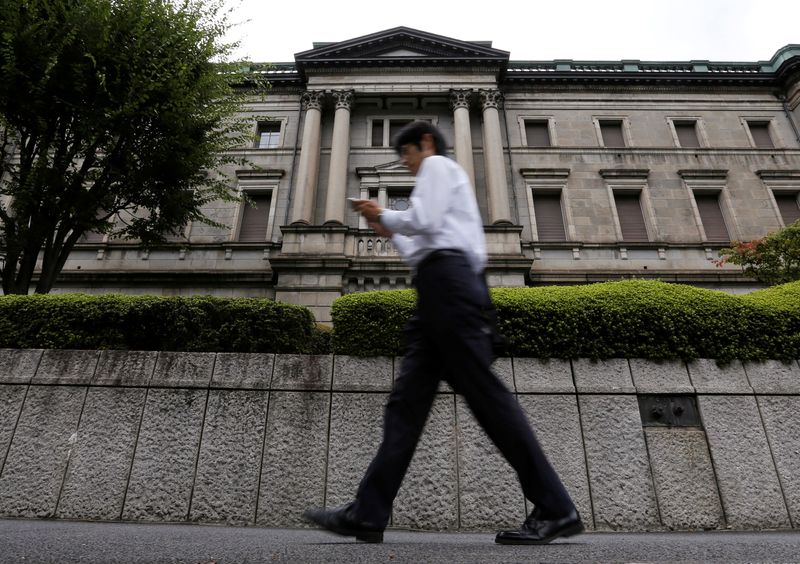By Tetsushi Kajimoto
TOKYO (Reuters) - Bank of Japan Governor Haruhiko Kuroda said on Monday the central bank would stick to monetary easing to support the economy for the present in order to achieve sustainable and stable inflation accompanied by wage growth.
Wage inflation, which has lagged policymakers expectations, is set to again take centre stage during pay talks next spring and should determine how successful Japan would be in spurring a virtuous cycle of demand-led economic and price growth.
Kuroda said the job market will likely tighten, particularly at service sector firms, many of which employ low-paid part timers and contract workers. As wage gains spread gradually to permanent workers at small firms, a tight labour market could prompt a shift of labour to highly productive sectors, he said.
The annual labour-management wage negotiations next spring will likely take into account both the tightening of the job market and rising inflation, he added.
"We are at a stage where we will continue monetary easing to firmly back economic activity at present," Kuroda told a meeting with business leaders in Nagoya in central Japan, home to Toyota Motor (NYSE:TM) Corp, world's biggest automaker by sales.
"This will help companies lay ground for wage hikes as we are aiming for sustainable and stable achievement of our price stability goal accompanied by pay increase."
Atsushi Takeda, chief economist at Itochu Economic Research Institute, said that next year's wage talks could achieve a 3% increase from this year's 2%, although that would be still short of 5% demanded by the Rengo confederation of trade unions.
"The wages hold the key to see whether sustainable inflation takes hold. In that sense, tightening of the labour market may be an encouraging signal to Governor Kuroda," who will bow out next April, with some success despite failing to achieve the 2% inflation goal, said Takeda.
POLICY CHALLENGE
Unlike the United States and Europe -- which are tightening monetary policy to combat rising inflation -- Japan is still only halfway to recovery from impact of the COVID pandemic, with the output gap remaining in negative territory, Kuroda said.
The BOJ maintained ultra-low interest rates at its last policy meeting in October, keeping its dovish guidance intact and heaping downward pressure on the Japanese currency.
The dollar rose to trade just under 152 yen late in October, which traders say likely prompted Japanese authorities to intervene for a second time within a month to support the yen.
Last week, however, the dollar tumbled 8 yen to below 139 yen after a softer-than-forecast U.S. consumer inflation report dented expectations for aggressive rate hikes by U.S. Federal Reserve.
"Sharp (OTC:SHCAY) currency moves are undesirable," Kuroda said. "We'll closely liaise with the government to monitor financial and currency markets and their impact on Japan's economy and prices."
Kuroda said Japan's consumer inflation would accelerate to around 3% this fiscal year but slow to around 1.5% next year as global commodity prices have declined lately, reducing cost-push inflationary pressures from import costs.
He said, however, that there remained a large element of uncertainty over the outlook for Japan's economy, including global commodity and currency markets and other price pressures.

Japanese firms have long been wary about raising prices but were now making broad increases, he added.
"We must pay attention to the price-setting mechanism at companies," Kuroda said.